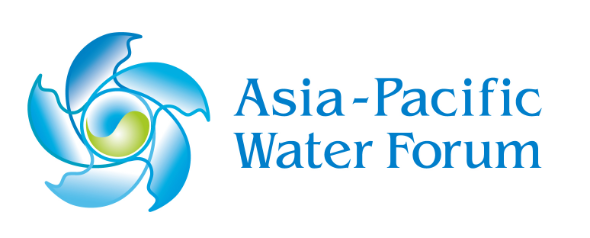

The water crisis is often a crisis of governance, so addressing effective water governance should be one of the highest priorities in Asia-Pacific. Key regional actors gathered in this session shared innovative approaches in examining and improving water governance to boost sustainable and inclusive development and kick-start commitments towards concrete collaborative action.
This session is organized as a milestone towards the 4th Asia‐Pacific Water Summit held in April 2022, Kumamoto, Japan. It aims to support decision-making process and encourage the leadership and commitments of heads of state and government of 49 countries in Asia and the Pacific urgently and decisively for resilience, inclusiveness, and sustainability for the current and the next generation’s quality growth in Asia and the Pacific.
|
Asia Focus: Accelerating inclusive water governance to advance sustainable development
|
Session overview
This session was divided into 3 main parts. The first part shared the position and status of water governance in the Asia-Pacific and examined regional water governance challenges. It then proposed the necessary water governance to promote sustainable and inclusive development. ADB introduced the outcomes of Asian Water Development Outlook 2020, OECD presented the analytical outcomes of water governance in Asia and the Pacific. Water Integrity Network shared the analytical outcomes of water integrity global outlook in 2021, focusing on Asia. GWP introduced the progress on SDG 6.5.1 (IWRM) in Asia and the Pacific.
The Second part conducted the panel discussion by sharing key lessons and innovative approaches on water governance in Asia-Pacific to enhance water security at the national and sub-national levels. Before the panel discussion, each panelist conducted 3 minutes video presentation and introduced their latest programs to improve water governance in Asia and the Pacific. After the video presentation, each panelist discussed how to implement good practices toward improved water governance to achieve the SDGs in 2030 and shared the lessons, challenges, and prospects.
In the second part, Dr. Mikio Ishiwatari, Senior Advisor on Disaster Management and Water Resources Management, JICA, shared the Japanese lessons about water governance throughout history. Dr. Tetsuya Ikeda, Deputy Director, International Centre for Water Hazard and Risk Management (ICHARM) emphasized the importance of raising the governance capacity of institutions on flood management through collaborative platforms and developing the capabilities of individuals through professional training programs.
Furthermore, Mr. Raphael Glemet (video presentation) and Mr. Vishwa Ranjan Sinha, IUCN Asia, presented the role of International Water Law and informal mechanisms in transboundary water cooperation, including introducing approaches to promote nature-based solutions. Dr. Oriana Romano, Head of Unit, Water Governance and Circular Economy, OECD, presented water governance for blue cities. She then shared how to conduct water policy instruments to manage trade-offs across water users to encourage stakeholder engagement in water decision-making, integrity and transparency practices to tackle institutional fragmentation and policy silos.
In the third part, Mr. Fany Wedahuditama, Regional Coordinator, GWP Southeast Asia, presented “Breaking down the silos: a multi-stakeholder open program for enhanced water security.” He encourages all water governance experts and practitioners to participate in the open program and conduct joint actions and solutions to enhance water governance to accelerate the achievement of the SDGs in Asia and the Pacific.
As the wrap-up of Asia Focus Governance, Ms. Yumiko Asayama, manager, Japan Water Forum c/o APWF Secretariat, proposed the following three action proposals.
|
3 Action Proposals from the Asia Focus Governance Session Action #1 – Governance and monitoring of policies (which include data)
Action #2 – Finance and investment Action #3 – Capacity building through collaboration platforms and multi-stakeholder processes
|
Program
|
Opening Remarks |
|
Session1: Position and status of water governance for Asia Pacific countries to address issues on regional water governance
Session 2: Learning exchange sharing and discussion on concrete case studies in water governance (3 minutes video presentation)
Plenary Panel Discussion (LIVE) ● Mr. Vishwa Ranjan Sinha, Programme Officer, Science and Strategy Group, IUCN Asia Session 3: Joint actions and solutions for water governance to accelerate the achievement of the SDGs through enhanced water governance Q&A from the audience Closing Remarks: Summary of this session and Action Proposal |
(Reported by Yumiko Asayama, Manager)
